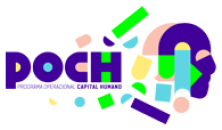On November 20, 2022, the Universidade Católica Portuguesa (UCP) participated in a debate about what is envisaged to be the University of the Future. What transversal competences should be developed in students? What are the recommended pedagogical models to promote these competences? What distinguishes teaching at UCP from other Higher Education Institutions?
The questions were raised in the project "Skills 4 Post-COVID - Competences for the Future in Higher Education" presentation session, recently approved by the PO CH – Programa Operacional Capital Humano [Human Capital Operational Program], which the CLIL team is responsible for.
The session took place online and brought together the project's faculty, students, and community partners to discuss the transversal competencies students need to develop and the most appropriate pedagogical models for promoting these competencies.
Isabel Vasconcelos, Vice-Rector of the Universidade Católica Portuguesa, attended the first part of the meeting. First, Diana Soares presented the CLIL objectives, the CLIL team, and the various activities of pedagogical innovation planned to implement. Then, faculty, students, and partners from the community (both society and business) were divided into four groups to discuss the theme "Innovating for the Competences of the Future at UCP".
What competences should students have and faculty help develop?
The partners from the community who agreed to participate in the meeting were asked, among several aspects, to point out the key competences they most seek when recruiting professionals.
"One aspect that greatly surprised us was that several partners mentioned the importance of working on more humanistic student competencies. The emphasis on tolerance, emotional management skills, diversity, and inclusion was clear," says Diana Soares, faculty and researcher at Faculdade de Educacão e Psicologia, Universidade Católica Portuguesa, and CLIL coordinator, along with Paulo Dias, faculty and researcher at the Faculdade de Filosofia e Ciências Sociais of UCP.
For the students who participated in the session (some of them representing Student Associations from UCP faculties), critical aspects in the learning process are the necessity to develop complex problem-solving skills and an informed analysis of labour market needs. Overall, students consider it essential to implement pedagogical practices in a natural context scenario, using the University's network of external partners.
When asked about the pedagogical models they would recommend to promote these critical transversal competences, faculty mentioned implementing teaching strategies that foster critical thinking and pedagogical methods related to service-learning. Some faculty even mentioned the importance of CLIL as a relevant space to support the UCP faculty community in pedagogical innovation.
Creation of an interactive ebook with innovative teaching practices for the promotion of future skills
The CLIL team will create an interactive ebook with teaching practices that aim to assist faculty in promoting the skills of the future, using the discussion between the various speakers present at the November 8 session as a starting point. The ebook will later be disposable to the whole UCP academic community and will remain online in an interactive platform being developed within the project.
This CLIL presentation session also counted on the participation of representatives of the network of UCP community partners, namely Google, Amazon, Deloitte, Câmara Municipal do Porto, Ordem dos Advogados, DST, Delgado & Associados, Colégio Paulo VI, Human Power Hub, Cetelem, Cáritas Diocesana do Porto and Comissão Executiva da AMP.
Project funded by PO CH - Human Capital Operational Program
The project "Skills 4 PósCOVID - Competências para o Futuro no Ensino Superior" [Competences for the future in Higher Education] is financed by Portugal 2020, in the frame of the PO CH – Programa Operacional Capital Humano [Human Capital Operational Program], through FSE – Fundo Social Europeu [European Social Fund].
Laboratório de Inovação Pedagógica | CLIL

